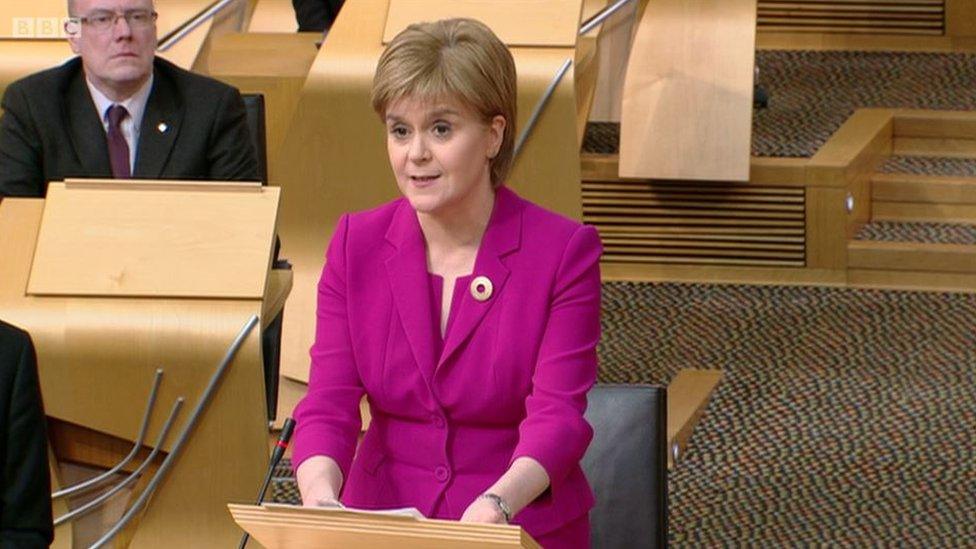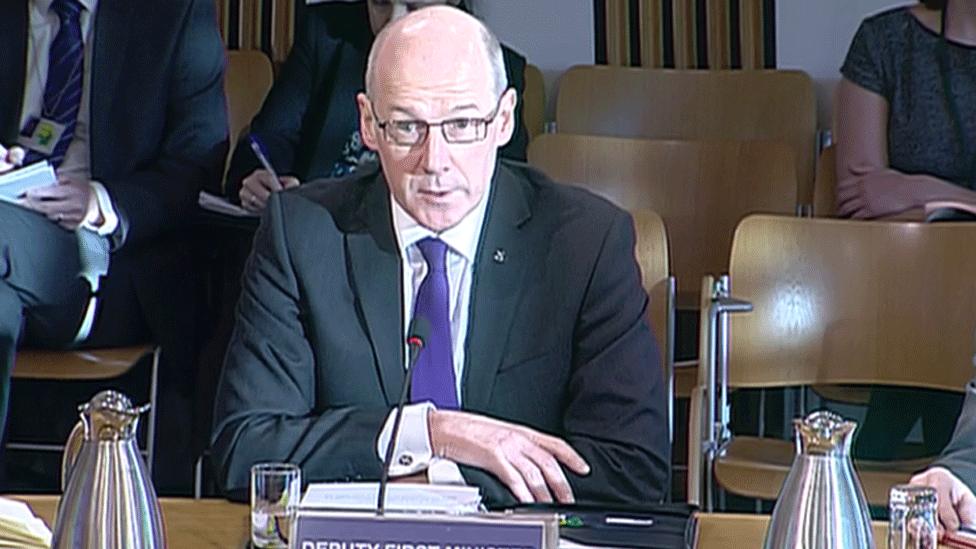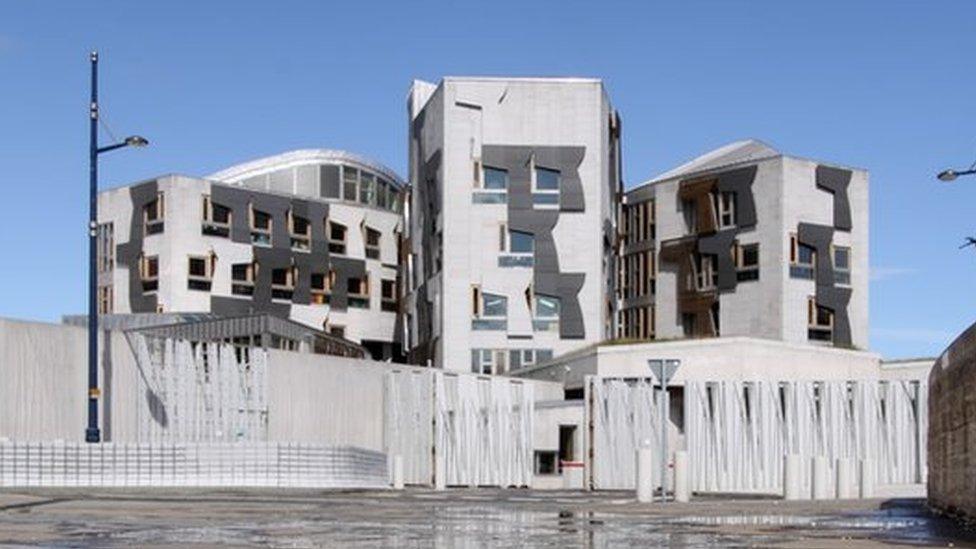Fiscal framework: Treasury tables fresh offer to break deadlock
- Published

Ms Sturgeon warned she would not sign up to a deal which was bad for Scotland
The Treasury has tabled a fresh offer in a bid to break the deadlock over a financial deal for new devolved powers, Nicola Sturgeon has told MSPs.
The first minister said she was ready to hold talks with David Cameron to resolve the fiscal framework impasse.
Ms Sturgeon said she was hopeful a deal could be done, but warned she would not "sign up to a systematic cut to Scotland's budget".
Scottish Secretary David Mundell is to appear before MSPs later.
The UK and Scottish governments have been negotiating for almost a year over the fiscal framework, a financial deal to underpin new powers devolved north of the border under the Scotland Bill.
John Swinney addressed the devolution committee on Tuesday morning, saying there were was one "persistent" issue standing between the parties.
The finance secretary said agreement had been made in "all" areas except on the adjustment of Scotland's block grant - a message echoed by Ms Sturgeon in a parliamentary statement at Holyrood.

John Swinney was quizzed by members of Holyrood's devolution committee
Ms Sturgeon said the key area of dispute was now what happens at a potential review of the deal in five years' time.
She said the UK government had "signalled some movement towards our position", and said a fresh offer had been tabled an hour before she appeared in the Holyrood chamber.
'Population driven detriment'
The issue revolves around how Scotland's block grant from Westminster is adjusted to take into account new fundraising powers it would inherit. The Scottish government wants to do this via a method called per capita indexed deduction (PCID), which the first minister called "predictable, transparent and sustainable".
Ms Sturgeon said a model had been agreed for the first five years, based on the Treasury's preferred mechanism but delivering the same outcome as PCID, at which point both parties agree there should be a review.
She said that at that stage, the UK government wanted to revert to a position where Holyrood's budget bears "population driven detriment", or the financial impact of Scotland's population growing more slowly than that of the UK as a whole.
She said this would see Scotland's budget "reduced systematically" compared to the current level of funding "by a cumulative total of £2.5bn" over 10 years.
Ms Sturgeon said she had written to David Cameron suggesting that if an agreement could not be reached with the Treasury, "he and I should seek to resolve the matter directly".
She said: "I want these new powers. And whether or not we get a deal, I have made clear that I will publish a manifesto that sets out what we could do with these powers.
"My government will continue to work to secure agreement for as long as the parliament allows us to. Indeed, even as we speak, discussions are ongoing with the Treasury in an attempt to secure movement and find agreement.
"But I will not sign up to a systematic cut to Scotland's budget - whether that cut is being applied today or by a pre-judged review in five years' time."
Mr Swinney earlier told MSPs on Holyrood's devolution committee there was one "persistent" issue outstanding.
Nothing is agreed until everything is agreed."
Mr Swinney told the committee: "I believe we have reached an acceptable agreement on all issues with the exception of the key question of methods of block grant.
"The reason for this fact is that there remains a fundamental difference on the principle of no detriment. I believe that no detriment means that our budget should not be cut as a consequence of the devolution of these powers. The UK government takes a different view."
The areas said to have been resolved include the financial transfers to meet implementation and administration, and capital and resource borrowing.
While Mr Swinney also voiced hopes a deal could be done, he warned that time was running out for Holyrood to scrutinise any agreement before dissolution ahead of May's elections.
'Carefully choreographed'
Scottish Labour said it "fully supports the first minister to secure a good deal for Scotland".
Scottish Trades Union Congress general secretary Grahame Smith said the Scottish government was "perfectly correct" to reject the initial deal put forward by the Treasury, saying anything other than a full "no detriment" deal would "incrementally eat away at the Scottish budget and cause serious damage within a decade".
However, Scottish Liberal Democrat leader Willie Rennie said the current negotiations were "carefully choreographed" to cover up that the Scottish government had "caved in" to Treasury demands.
He said: "I suspect the Scottish government knew they had to cave in order to get a deal, given how bad it would look for them if they couldn't.
"They promised they could negotiate independence in just a few months so they had to agree this today, whatever the price."
- Published22 February 2016

- Published8 February 2016
